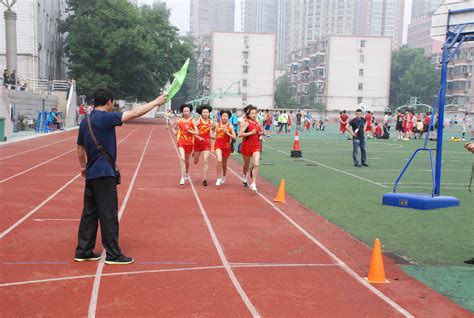高中体育面试考什么
Title: Comprehensive Guide to High School Sports Interviews
Introduction
High school sports interviews play a crucial role in identifying talented athletes, building strong teams, and fostering a culture of sportsmanship and teamwork. Whether you're an aspiring athlete or a coach looking to recruit new talent, understanding the interview process is essential. This guide provides a comprehensive overview of the typical steps involved in high school sports interviews, along with tips for success.
1. Initial Contact and Application
The process usually begins with the athlete expressing interest in joining a particular sports team. This can happen through various channels:
Online application forms on the school's athletic department website.
Direct contact with the coach via email or phone.
Recommendations from teachers, coaches, or community members.
The athlete may be required to provide basic information such as their name, grade level, previous sports experience, academic standing, and contact details.
2. PreInterview Preparation
Before the actual interview, both the athlete and the coach should prepare thoroughly:
Athlete Preparation
:Reflect on personal strengths, weaknesses, and goals in sports.
Research the team's history, achievements, and coaching philosophy.
Prepare questions to ask the coach about the team dynamics, training regimen, and expectations.
Coach Preparation
:Review the athlete's application and any available performance data.
Identify specific qualities and skills needed for the team.
Prepare interview questions to assess the athlete's suitability for the team.
3. The Interview Process
The interview itself typically consists of one or more meetings between the athlete and the coach. Depending on the sport and school, additional stakeholders such as assistant coaches or athletic directors may also participate. The interview may cover various topics, including:
Athletic Abilities
: The coach may inquire about the athlete's skills, strengths, areas for improvement, and previous sports experiences.
Character Assessment
: Questions may aim to gauge the athlete's attitude, work ethic, leadership potential, and ability to work within a team.
Academic Standing
: Academic performance and eligibility for participation in sports are often discussed to ensure a balance between athletics and academics.
Commitment Level
: Coaches may assess the athlete's dedication to training, attending practices, and maintaining a healthy lifestyle.4. Demonstrating Skills and Abilities
In addition to verbal discussions, coaches may evaluate the athlete's skills through practical demonstrations. This could involve:
Skills Drills
: Performing specific drills or exercises relevant to the sport to showcase technical abilities.
Scrimmages or Tryouts
: Participating in practice sessions or simulated game situations to assess teamwork, adaptability, and game awareness.
Physical Fitness Tests
: Completing fitness assessments to evaluate strength, speed, agility, and endurance levels.5. PostInterview Assessment
After the interviews and skills assessments, coaches evaluate each candidate based on predetermined criteria. Factors considered may include:
Athletic potential and skill level.
Compatibility with team culture and values.
Academic standing and eligibility.
Commitment level and availability for practices and games.
Potential for growth and improvement.
6. Notification and Decision
Once the assessment process is complete, coaches notify candidates of their decisions. This may involve:
Offer of a spot on the team, along with any conditions or requirements for participation.
Placement on a waiting list if the team has limited positions available.
Suggestions for alternative options or areas for improvement if the athlete is not selected.

Conclusion
High school sports interviews serve as a vital step in recruiting talented athletes and building successful sports teams. By understanding the interview process and preparing effectively, both athletes and coaches can maximize their chances of success. Clear communication, honesty, and a commitment to excellence are key elements in this process, ensuring that the right athletes find their place on the team and contribute to its success.









